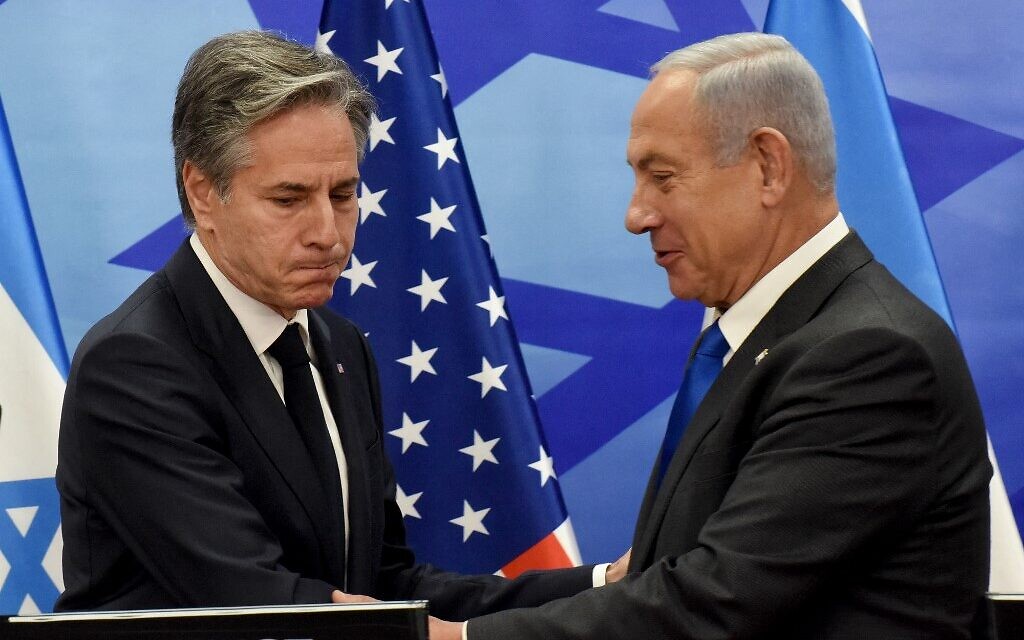U.S. Secretary of State Antony Blinken urged Israeli Prime Minister Benjamin Netanyahu to seize a strategic moment following the assassination of Hamas leader Yahya Sinwar, emphasizing the need to secure the release of hostages from the October 7th attack and push for an end to the Gaza conflict. The talks marked Blinken’s 11th trip to the Middle East since the outbreak of the Gaza war, occurring ahead of the U.S. presidential election, which could shift U.S. foreign policy.
Blinken’s visit, however, faced challenges on two major fronts: securing a ceasefire in Gaza and managing the escalating conflict between Israel and Hezbollah in Lebanon. An Israeli airstrike near Beirut’s main hospital killed at least 18 people, including four children, further complicating efforts to de-escalate tensions.
The death of Yahya Sinwar, viewed by the U.S. as a potential turning point, has led Western allies to see a possible breakthrough, with Netanyahu’s government claiming it could provide leverage in ending the war. However, Israel remains committed to destroying Hamas as both a military and governing force in Gaza, while Hamas continues to refuse any hostage release without a ceasefire. Hezbollah, meanwhile, launched new attacks on Israeli military targets, signaling its resilience despite Israel’s strikes on Lebanon.
Diplomatic efforts also focused on reviving the dormant 2006 U.N. resolution to restore peace along the Israeli-Lebanese border, though Hezbollah has ruled out any negotiations during ongoing fighting. As Blinken navigated these challenges, Israeli strikes continued to devastate Lebanese targets, with over 2,500 killed in Lebanon, and 1.2 million displaced as the conflict widened. Amid these complexities, Blinken’s talks were viewed as an attempt to lock in Israeli positions before a potential change in U.S. leadership following the November 5 election.



